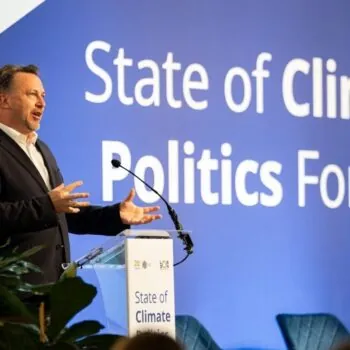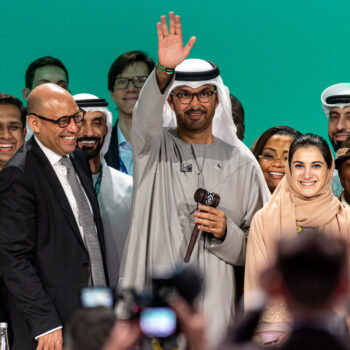A year on from the adoption of the Agenda 2030 for Sustainable Development, with the Paris Climate Agreement under its belt, the UN General Assembly reconvenes for its 71st session. 2015 thrust the UN into the spotlight on issues of climate and sustainable development but now the dust has settled what’s next for the UN?
New tools for contemporary crisis
This week there are two summits addressing the global refugee crisis. Understandably a good chunk of the focus will be absorbed by addressing immediate challenges. Resources are inadequate, human rights violations are on the rise and people are left stranded without a place to call home. But it is crucial that the UN and governments alike also look to the horizon and seize the tools hard-won in 2015 to build a better future.
As globalisation kicks back and climate impacts worsen the map of global prosperity and stability is being redrawn. If current trends continue people will flee their homes driven by conflict, hunger and poverty in ever greater numbers. People want a home; we crave stability and an opportunity for our families to thrive. Agenda 2030 is full of promise. Its 17 Sustainable Development Goals forged by citizens, leaders, campaigners, business and cities this vision responds to a world of diverse needs. Its successful implementation can create the foundations of diverse prosperous societies, where people can relocate or are fortunate to remain. Its implementation both at home and abroad represents an act of solidarity, achieving resilient development that better absorbs 21st century challenges. Conclusively, investment in climate resilient sustainable development is the only prospect of securing long-term safe haven for citizens across the world.
Getting its own house in order
To begin with much of the UN’s work will focus on diligently filling in the finer details, forming the indicators and creating the platforms for tracking progress. It will also provide a neutral space for actors across the world to unite to pursue partnerships and engage in active learning to help deliver the goals. However, whilst these practical steps are essential the UN faces a much bigger challenge.
Just like a country, the UN itself must become institutionally compatible with Agenda 2030 and the Paris Climate Agreement. This is no easy task; outdated assumptions are not always easy to retire. But if the UN does not succeed it will fail to come good on its mission to uphold peace, rights and security in the 21st Century. The UN is facing potent cocktail of global threats – including rapid urbanisation, mass youth unemployment and competition for basic resources – and these are only made more deadly by climate change. The humanitarian system is on the brink; food and health institutions are struggling to keep pace with new global health challenges; and previously successful peacekeeping approaches are unravelling. The overburdened system must come to terms with today’s realities and reform its institutions to become sustainable and climate resilient.
UN reform, a job for the Next Secretary General
Reform always requires leadership and this task will welcome the next Secretary General as they take office in 2017. Secretary-General Ban Ki-moon was pivotal in holding the global climate and sustainable development conversation together. He reached out to world leaders, convened discussions, created platforms to pledge shared commitment and launched initiatives which mobilised the UN to deliver a spectrum of projects.
The ninth Secretary General must kick-start this reform process by making climate resilience a UN institutional responsibility. This means allocating responsibility within each UN body and agency for managing climate risk. In this way, each institution can stress-test its operations against climate scenarios to understand the challenges and opportunities they face and be accountable to managing them. It is only then that the UN will become a credible leader, effectively embodying the vision it created under the guise of Agenda 2030 and the Paris Climate Agreement.



